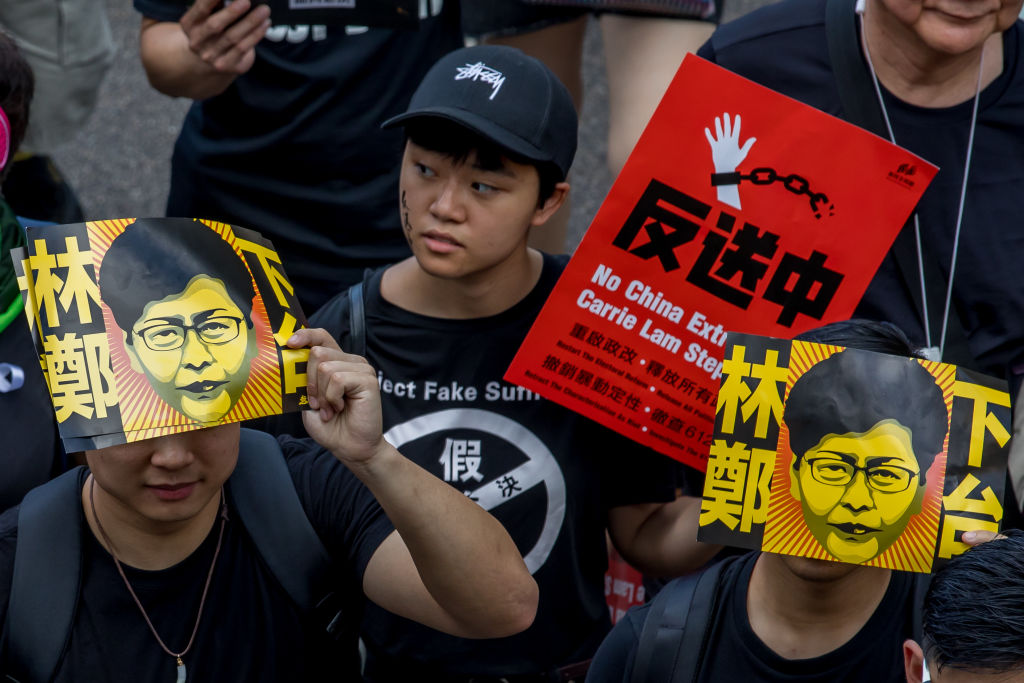
Representatives from two Hong Kong universities rejected an invitation Friday to meet privately with the city’s leader and discuss the political crisis that has flared over a controversial extradition bill.
The city’s Beijing-backed leader, Chief Executive Carrie Lam, has suspended but not withdrawn the bill, as protesters over the past month have demanded. She has also pledged to do a better job of listening to the young people who have thronged to the streets opposing her bill and demanding her resignation.
Student leaders called Lam’s invitation “insincere” and a “public relations act.”
Speaking to reporters on Friday morning, students from the Chinese University of Hong Kong and the Hong Kong University of Science and Technology insisted that the meeting be made public.
“If she really had sincerity, she would lay it all out and speak publicly to the whole world, to all of Hong Kong,” Lai Wai Chun, Provisional President of the student union at the University of Science and Technology, said, echoing a post on the union’s Facebook page explaining why it had refused the meeting.
Lai also criticized Lam for only reaching out to two universities. “Are you saying that students from just two universities can represent all the young people? This makes us feel doubtful.”
President of Chinese University’s student union, Jacky So, called Lam’s request a public relations stunt. “Throughout the whole of June, she never asked to meet us young protestors, even refusing to speak with pan-democrat lawmakers,” he said.
The student leaders also demanded that Lam drop all charges against protestors before they would agree to a meeting.
The Chief Executive’s call for dialogue comes days after protestors used metal poles, hammers and carts to break into the Legislative Council complex on the 22nd anniversary of Hong Kong’s handover to China. Inside, they vandalized the meeting chamber, where they defaced portraits of political leaders, spray-painted slogans and tore up a copy of the post-colonial constitution.
A 31-year-old man was reportedly charged Friday with assaulting a police officer and criminal damage, while 12 other suspects have been detained in connection with other public order violations, including possessing weapons.
The day’s radical action represented a dramatic escalation after weeks of protests against the extradition bill which, if passed, would allow fugitives to be transferred to mainland China for the first time. The government insisted the legislation would stop the enclave from becoming a criminal haven, while detractors fear Beijing would use it to arrest dissidents.
The protesters have not been satisfied by Lam’s promise that the suspended bill will expire with the end of the current legislative session in 2020, and have articulated five demands, including the full cancellation of the bill, Lam’s resignation, the government to drop the classification of a June 12 protest as a “riot,” an investigation into police tactics and the release of all arrested demonstrators.
More Must-Reads from TIME
- Cybersecurity Experts Are Sounding the Alarm on DOGE
- Meet the 2025 Women of the Year
- The Harsh Truth About Disability Inclusion
- Why Do More Young Adults Have Cancer?
- Colman Domingo Leads With Radical Love
- How to Get Better at Doing Things Alone
- Michelle Zauner Stares Down the Darkness
Write to Hillary Leung / Hong Kong at hillary.leung@time.com